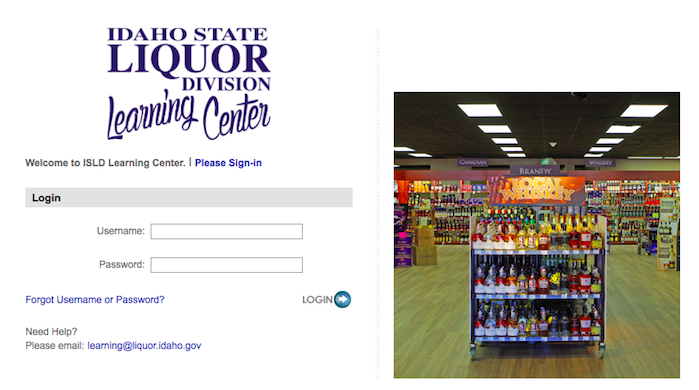The Idaho State Liquor Division (ISLD) implemented two innovative programs last year. Leveraging technology, the organization has enhanced employee education, as well as the work and effectiveness of scheduling.
“Staff training is key,” says Catie Wiseman, ISLD training specialist. “We truly believe that investing in our employees will make them happier and better at their jobs, making for a better experience for our guests.”
Wiseman worked with Cornerstone OnDemand to launch The ISLD Learning Center in 2016. This cloud-based system includes educational videos, website links and PDF documents. The idea came about five years ago when Wiseman was looking into what educational resources were and were not available to staff.
Employees can log on from anywhere with internet access. Managers can assign specific training to different staff, track their progress and elicit feedback.
Current training includes videos on ID verification focused on identifying fakes and underage customers, website links including BeTheParents.org, the TEDTalk “What It Takes to Be a Great Leader,” and various documents including the ISLD Employee Handbook and Store Operations Manual.
“Effective training in responsible service, associate on-boarding and continuing education is essential in fulfilling the mission of the Idaho State Liquor Division,” says ISLD Director Jeffrey R. Anderson. “Catie has done an excellent job leveraging modern technology in an efficient, affordable and user-friendly manner.”
The tool also tracks mandatory training for responsible service, sale and consumption of alcohol. The next steps for this tool will be a continued focus on ID verification, customer services skills and HR compliance.
Schedule Communication
The ISLD had a scheduling problem. There are only so many work hours to allocate, and sometimes the organization would discover it had inadvertently overscheduled. This left them uncomfortably close to going over budget as they neared the end of fiscal years.
What was needed was better communication. As a result, the organization last year implemented its new “When I Work” scheduling program. This online tool allows managers to quickly see their weekly allocated hours, helping them remain mindful of going over.
“Several stores were doing great things in Excel, but with this tool the best practices have been combined from various locations and now shared with everyone,” Wiseman says.
All ISLD employees can access the schedule through When I Work. Usage has been lower among non-managerial staff, however, and Wiseman hopes more will make use of the program moving forward. To encourage this behavior, she has planned education initiatives to better present the program to all staff.
Other benefits of When I Work include viewing schedules on cell phones, fewer no-shows and less time spent on scheduling because of the copy/paste and shift/drag features. Employees have shared that the highlight for them is requesting time off and having managers approve the request on their phone in a timely manner. “It has been well-adopted and proven to be a very helpful tool for the stores and management,” Wiseman says.
Both new programs have already paid dividends. “The use of technology has elevated our communication channels, and the accessibility and accountability of our teams,” Wiseman says.
Even so, Wiseman warns not to overrate tech at the cost of old-fashioned methods. “All this doesn’t eliminate the importance of face-to-face meetings,” she says. “We may push everything out online these days, but managers still need face time with employees. There’s still a huge human element in all of this.”










